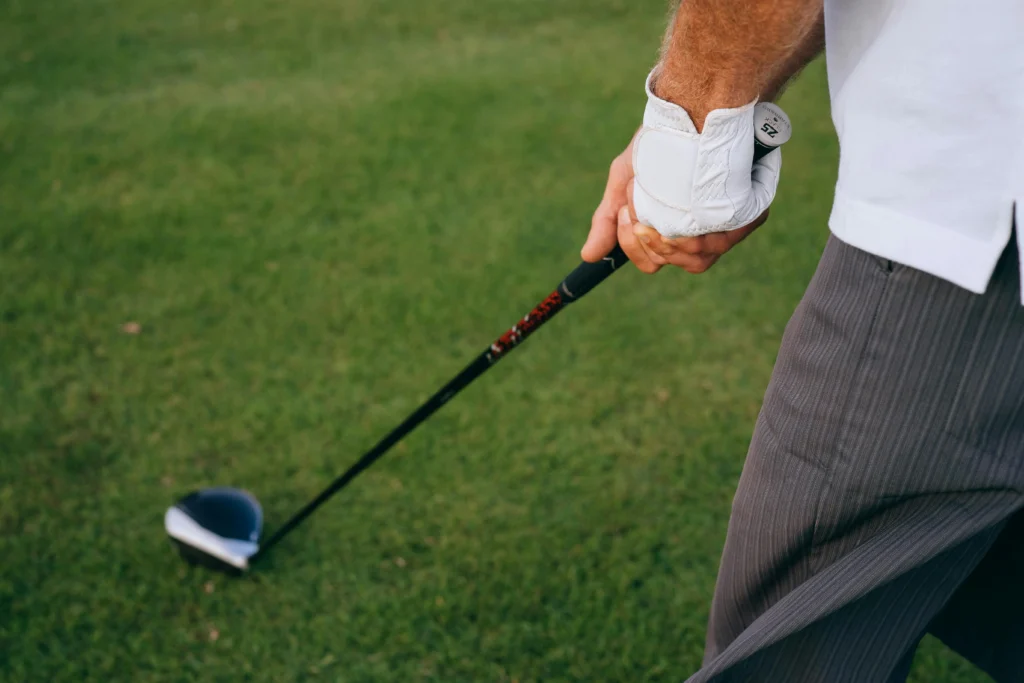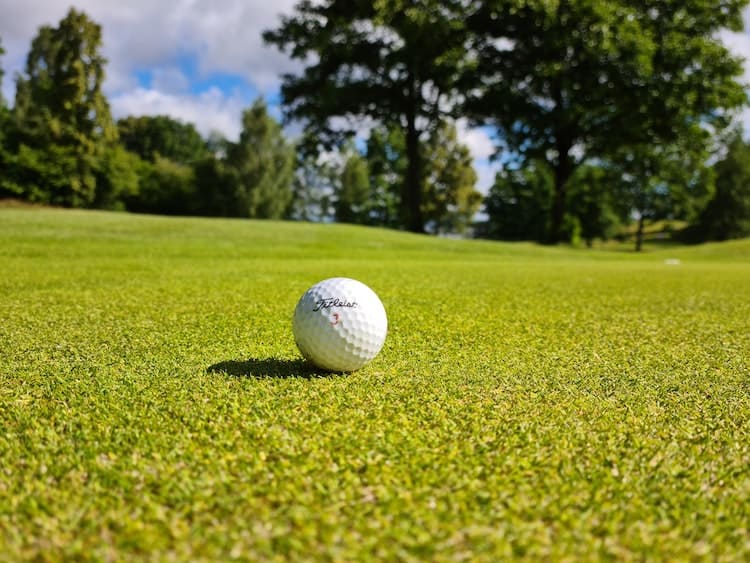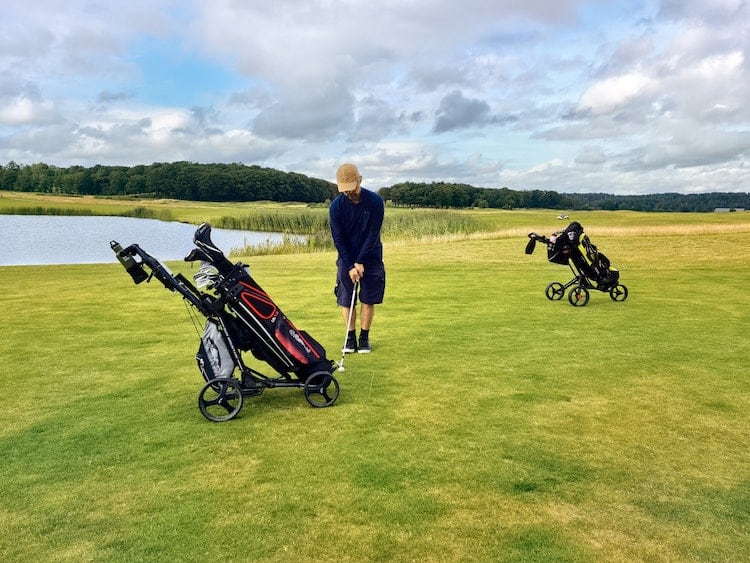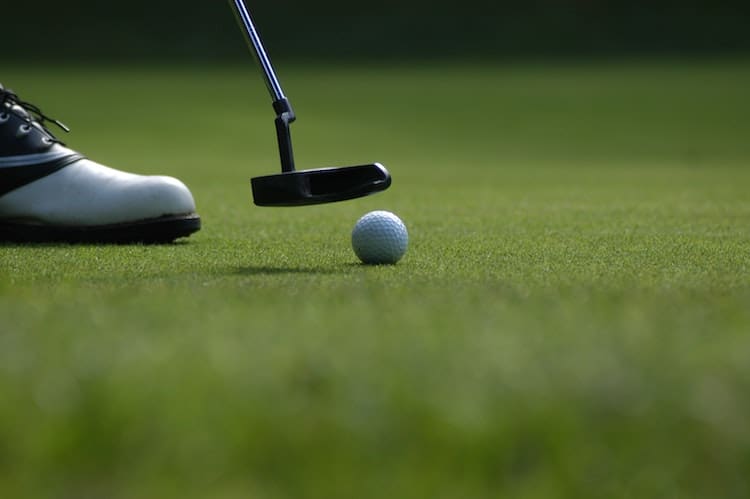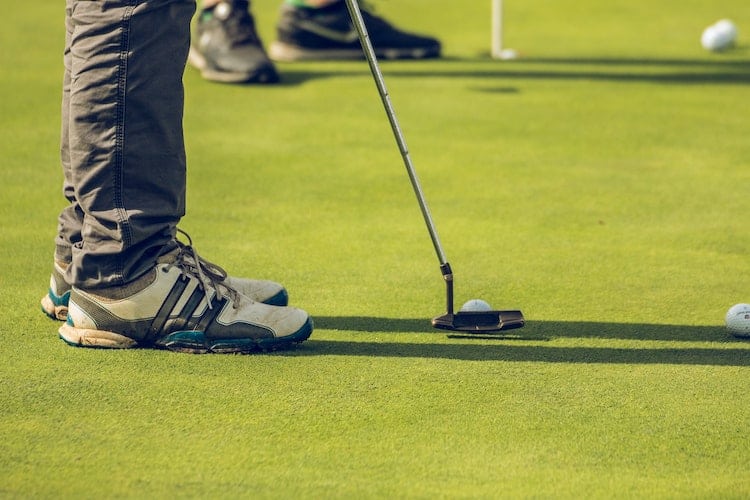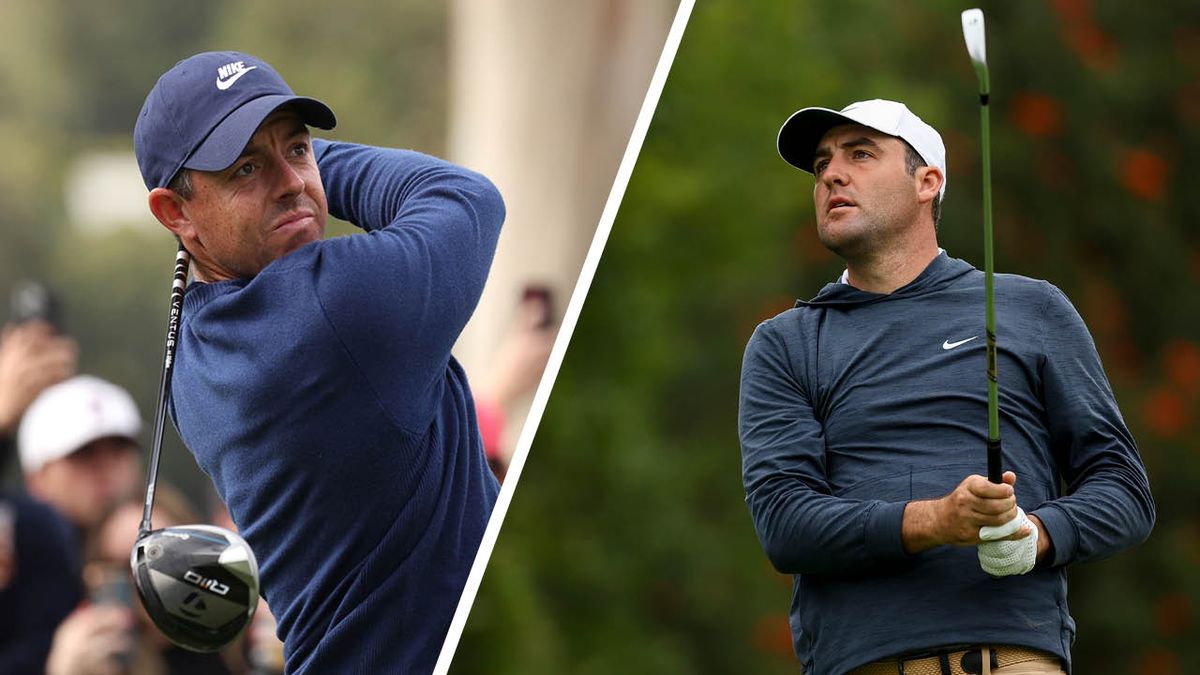“As its name suggests, the 10-finger golf grip places all ten fingers on the club, each applying an equal and consistent grip pressure. This simple, natural setup is why many beginners – and even some advanced players – find it comfortable and easy to control.”

The 10 Finger golf grip is exactly what it sounds like — all ten fingers hold the club at the same time, each applying similar grip pressure.
The 10 Finger grip has existed since golf began in the 15th century and is often called the “baseball grip” by many modern instructors.
Because it’s simple, natural, and comfortable, the 10 Finger grip is extremely popular with beginners. Many golfers feel that it delivers a more intuitive hold compared to the overlapping or interlocking grips.
To try it, simply imagine the golf club is a baseball bat and place all ten fingers on the shaft.
Table of Contents
ToggleWhy Some Golfers Prefer the 10 Finger Grip
There are several clear advantages to using the 10 Finger golf grip. Here are the most common reasons golfers choose it:
1. Easy to Learn
For beginners—especially those who have played baseball or softball—the 10 finger grip feels familiar and easy to adopt. It works well for golfers of all ages.
2. Produces Maximum Swing Speed
Golf today places huge emphasis on distance and clubhead speed.
The 10 Finger grip allows the hands, wrists, and forearms to generate more leverage, which typically increases swing speed and distance.
3. High Level of Comfort
Because the grip feels natural, there’s little strain on the wrists or hands. This makes it a great option for golfers wanting to reduce injury risk.
Drawbacks of the 10 Finger Golf Grip
While the 10 Finger grip has many benefits, it also comes with downsides. No grip is perfect — and every golfer’s body is different.
1. Easy to Grip Too Tightly
Because the grip feels natural, beginners may try to overpower the swing. Over-gripping restricts the release through impact, causing hooks, slices, and lost distance.
2. Dominant Hand Takes Over
A balanced golf swing requires both hands to work together. With the 10 Finger grip, the dominant hand can sometimes take control and disrupt swing timing.
3. Too Much Wrist Freedom
Some wrist mobility is good — but too much leads to inconsistency. Excess wrist hinge can cause hooks, slices, and a general loss of control.
As Jack Nicklaus often said: “The hands are the swing wreckers.”
PGA Tour Pros Who Use the 10 Finger Grip
Although commonly associated with beginners, several professional golfers have used this grip successfully:
Beth Daniel
One of the LPGA’s most accomplished players.
-
33 LPGA Tour wins
-
1990 PGA Women’s Championship winner
-
World Golf Hall of Fame member
Used the 10 Finger grip throughout her career.
Scott Piercy
-
Turned pro in 2001
-
4 PGA Tour wins, 2 Korn Ferry wins
-
T2 at the 2016 U.S. Open
Piercy has long used the 10 Finger grip.
Bob Estes
-
4 PGA Tour wins
-
T4 at the 1999 Masters
Still uses the grip on the PGA Tour Champions.
Dave Barr
-
12 Canadian Tour wins
-
2 PGA Tour wins
-
1 PGA Tour Champions win
Nicknamed “Hands,” and used the 10 Finger grip for decades.
Art Wall Jr.
-
14 PGA Tour wins
-
1959 Masters Champion
Played his entire career with the 10 Finger grip.
Who Is the 10 Finger Grip Best For?
While many instructors prefer other grips, the 10 Finger grip remains an excellent choice for certain groups:
1. Kids
Young golfers under age 10 often struggle with complex grip styles.
The 10 Finger grip keeps things simple and comfortable.
2. Female Golfers
Women with smaller hands often find the 10 Finger grip gives them more clubhead control and added distance through extra leverage. Many LPGA players prefer it.
3. Seniors
Because the 10 Finger grip reduces strain, it’s ideal for golfers with arthritis or wrist/hand discomfort.
4. Golfers with Small Hands
Players with smaller hands often benefit from the grip’s comfort, control, and added power.
Other Popular Golf Grips
Interlocking Grip

-
The pinkie of the trail hand interlocks with the index finger of the lead hand.
Made famous by Jack Nicklaus and Tiger Woods.Pros:
-
Great for small hands
-
Keeps hands unified
-
Reduces slipping
-
Helps some with hook issues
-
Offers stability for faster swings
Cons:
-
Feels unnatural to some
-
Can restrict players with large hands
-
May reduce distance
-
Can affect directional control
-
Overlapping Grip (Vardon Grip)

The pinkie of the right hand rests on top of the left index finger.
Popularized by Harry Vardon, and the most widely used grip in golf today.
Pros:
-
Excellent for large hands
-
Encourages a smooth wrist release
-
Often increases distance
-
Comfortable and stable
-
Reduces risk of blisters
-
Keeps hands connected throughout the swing
Cons:
-
Not ideal for small hands
-
Too much wrist action for some players
-
Can cause timing issues or directional problems
Related Articles: 5 Wood vs 3 Hybrid: Which Club Is The Best For You?

